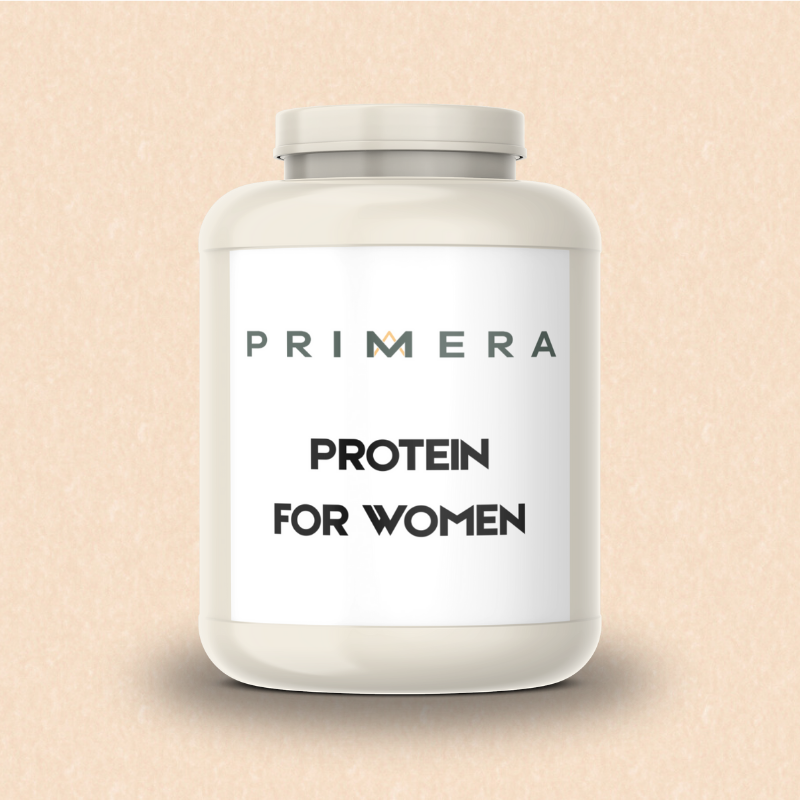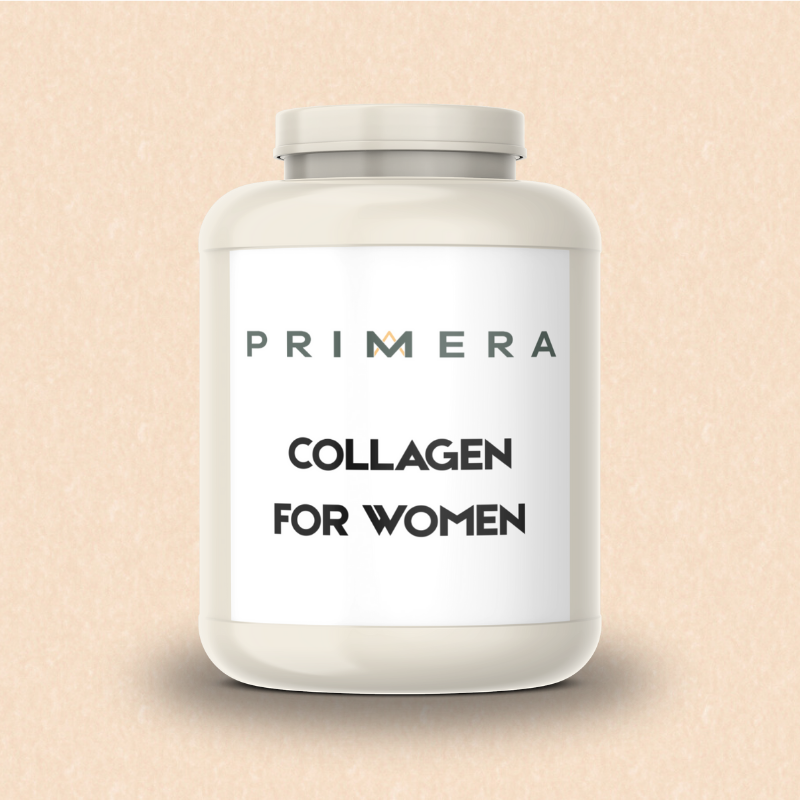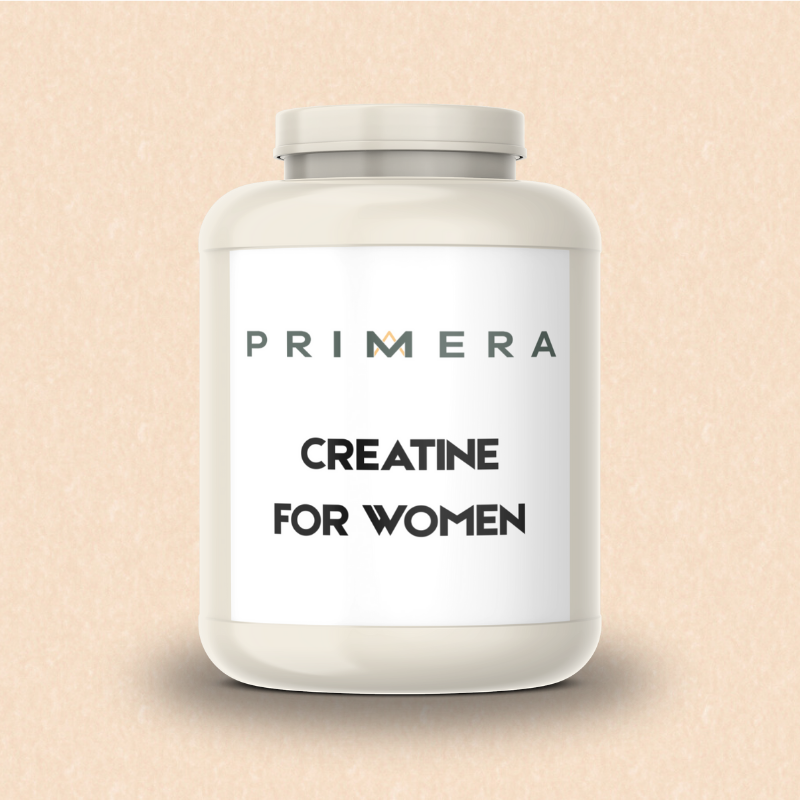Everything You Need to Know
Creatine
What are the benefits of creatine for women?
Creatine increases energy availability in your muscles and brain and is critical during periods of high energy demand, like when lifting weights, running, spinning or during a HIIT workout. Studies have shown creatine to have positive effects on:
- Power output during exercise
- Increases in lean mass
- Improved anaerobic capacity (such as HIIT workouts, plyometrics, hill sprints, etc)
- It may also improve cognitive performance under stress, mental health, and memory
Women also have naturally lower creatine stores than men, which means supplementation can have an even greater impact. Some experts suggest that creatine may also support women during different life stages — from PMS to pregnancy, postpartum, and menopause. While more research is needed in these areas, the evidence so far shows creatine is a safe and effective way for women to boost energy, strength, and recovery.
But WHAT IS CREATINE?
Creatine is your body’s natural energy reserve, helping you power through exercise and recover faster. Creatine is a naturally occurring compound stored in your muscles, brain, and gut that fuels all your high-energy activity. Your body produces a small amount each day (less than 1g) and you can also get creatine from foods like red meat and fish. The problem? You’d need to eat huge amounts to achieve the full benefits creatine can offer. That’s why creatine supplementation is such an effective way to boost energy stores, improve performance, and support strength and recovery.
WHAT DOES CREATINE DO?
Creatine helps your body create energy rapidly during exercise. When you do short, intense activity — like lifting, sprinting, or HIIT — your muscles burn through energy fast. Creatine works like a “battery charger,” helping your body restore that energy so you can train harder for longer. Since women only store a small amount naturally, supplementing with creatine gives your muscles a bigger reserve, leading to better performance, faster recovery, and more strength over time.
Is creatine safe for women to take long term?
Yes. Creatine supplements have been proven across multiple studies to be safe for women in both short term and long term studies. Creatine research goes back to the
early 1990s so its long term effects are very well known today.
What are the potential side effects of taking creatine for women?
Side effects in women who supplement with creatine are rare but could include:
- Water retention: this is the most common side effect when starting to take Creatine and is usually mild and temporary. The increased water in your body may initially look like weight gain on the scale but this is all in your muscles and not fat
- Bloating or digestive issues: High single doses can cause stomach upset, bloating or diarrhea, mainly in the loading phase. If this happens simply reduce the dosage until the symptoms have disappeared
- Kidney concerns: In people with healthy kidneys, long-term studies (even at high doses) show no harm. But people with kidney disease should consult their doctor before taking creatine because it can interfere with certain medications for
this.
How much creatine should women take per day?
- For improved athletic performance most studies recommend 3-5g per day. As creatine levels take some time to build up, most studies start with a “loading phase” of up to 25g per day for a week or so. This is not critical but will likely allow you to see the benefits sooner
- For cognitive benefits most studies used higher dosages of 20g per day or higher
for a short period of time
Does creatine make women bulky or cause weight gain?
Creatine may cause mild water retention (especially early on), but does not automatically cause muscle gain. In women who are training to add or maintain muscle, Creatine can enhance lean gains by enabling you to push your workouts harder.
What’s the best form of creatine for women?
Creatine monohydrate is the most common and therefore the most studied and effective form—other variants show no clear advantage when it comes to improving athletic performance.
When is the best time of day for me to take creatine?
Timing isn’t critical, consistent daily intake is key. Many women take it in a protein shake in the morning or pre- or post-workout for convenience and routine.
Does creatine help women with HIIT, running or CrossFit?
Yes! Creatine is especially good for enhancing high-intensity, anaerobic exercise performance. Active women can benefit across many different types of exercise including running, spinning, HIIT workouts, and CrossFit.
Is creatine vegan?
Yes. There are no animal products used in our creatine. Creatine supplementation is actually especially important for people following a vegan diet as most people get their natural creatine intake from eating meat.
Can women take creatine with protein or collagen?
Yes. There are no known safety concerns from combining creatine with protein or collagen. Since they act via different but complementary pathways they can be stacked. Pairing creatine with protein supports strength and muscle repair, while collagen complements joint and skin support.
What the Experts Say
“A growing body of research shows creatine can help increase strength, power, and athletic performance in females — and it’s also good for your brain health and maybe even your mood.”
Dr. Stacy Sims, PhD Exercise Physiologist & Nutrition Scientist,
WOMEN ARE NOT SMALL MEN ®
-
“The evidence does support that Creatine is a safe supplement to take, and there are benefits to taking it, especially for women.”
Bonnie Jortberg, PhD, University of Colorado - Anschutz Medical Campus
-
Studies show that women may have 20–40% lower creatine availability compared to men, making supplementation especially impactful.”
NutraIngredients-USA (2025 Expert Review)
Protein
What are the benefits of protein powder for women?
Protein supports lean muscle tone, post-workout recovery, bone health, metabolic
health, and can improve body composition. It is especially important when dietary protein isn’t sufficient. Protein also helps women feel full for longer and requires more energy to breakdown which means it can be extremely helpful while dieting.
Is protein powder safe for women to take long term?
Yes. Protein powders have been proven to be safe and effective for long-term use.
Protein shakes are not a meal replacement and should be consumed as part of a balanced diet. You should still aim to get the majority of your protein intake from natural sources such as meat, fish, eggs, dairy, legumes (like beans and lentils), nuts, seeds and soy products.
What are the potential side effects of taking protein for women?
Side effects in women who supplement with protein powders are rare but could include:
- Digestive issues: High doses can cause bloating, cramps, or gas. Whey protein is derived from milk and so people who are lactose intolerant should use vegan protein instead
- Kidney concerns: In people with healthy kidneys, long-term studies (even at high doses) show no harm. Very high protein intake may strain kidneys in people with kidney disease
How much protein do women need each day?
Most experts recommend 1.2–2.0 g of protein per kg of body weight per day, especially for active women or women over the age of 45.
When is the best time for women to drink protein shakes?
Post-workout is ideal for muscle recovery, but using protein for snacks or meal support is also effective, as timing is flexible based on your routine.
Does protein powder make women bulky or gain weight?
No. Protein powder supports lean muscle, not bulk. Weight changes typically reflect
calorie balance, not protein intake.
Can protein help with weight management for women?
Absolutely! High-protein intake increases satiety (helps reduce hunger), preserves muscle during weight loss, and supports a stronger metabolism. Increasing your protein intake will make it much easier to stick to your diet plan.
Can women take protein with creatine or collagen?
Yes. There are no known safety concerns from combining protein with creatine or collagen. Since they act via different but complementary pathways they can be stacked. Pairing protein with creatine supports strength and muscle repair, while collagen complements joint and skin support.
Collagen
What are the benefits of collagen for women?
Collagen has been shown to help with joint pain in many women and recovery after exercise. It also has many anti-ageing benefits such as improving skin elasticity, skin hydration and reducing wrinkles.
Is Collagen safe for women to take long term?
Yes. Collagen peptides supplements have been proven to be safe and effective for long-term use for women.
What are the potential side effects of taking Collagen for women?
Side effects in women who supplement with collagen are rare but could include:
- Mild digestive issues: Some users report nausea, bloating, or diarrhea
- Allergies: people with seafood or shellfish allergies should avoid using marine collagen
How much collagen should women take per day?
Studies often use 2.5-10g per day. One scoop of our Collagen for women gives you 5g which is enough for most women.
How should women take collagen for best results?
Mix our Collagen into water, smoothies, or meals consistently every day for at least 8 weeks to start seeing measurable benefits. Many women add a scoop to their morning tea or coffee.
When is the best time to take collagen?
Timing has minimal impact. Consistent daily intake (morning or evening) is more
important than precise timing.
Can women take collagen with protein or creatine?
Yes. There are no known safety concerns from combining collagen with creatine or protein. Since they act via different but complementary pathways they can be stacked.





